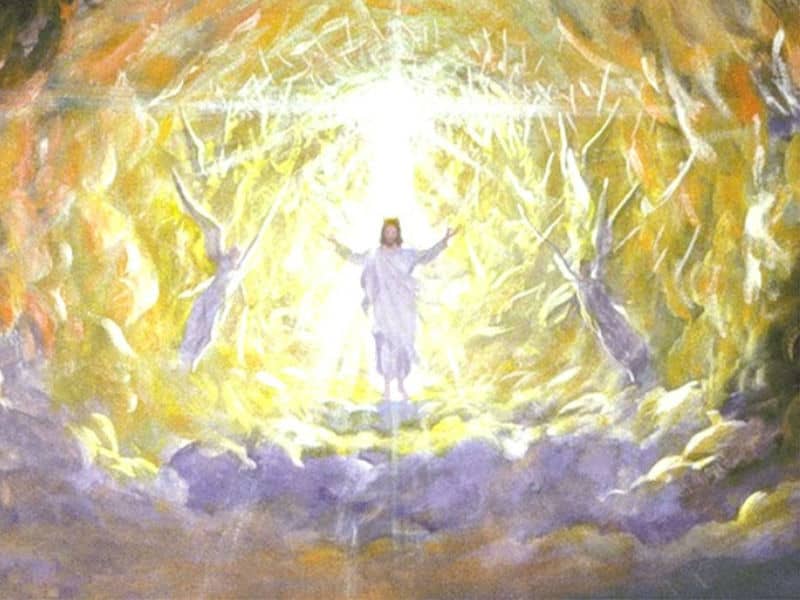Both the wine and the skins on the ABC anchorman's quest for the "historical" Jesus come courtesy of the Jesus Seminar, the press-schmoozing cadre of biblical scholars best known for its sweeping pronuciamentos, typically timed for Christmas or Easter, that Jesus didn't say or do most of the things the Bible says about him.
Although the phrase "Jesus Seminar" never appears in the special, which is photographed largely in the Holy Land, four out of the seven biblical scholars whom Jennings interviews (along with assorted archaeologists and clergymen) are longtime Jesus Seminar stalwarts. They include Seminar founder Robert W. Funk (identified only as affiliated with the Westar Institute, which runs the Seminar), former Seminar co-chairman and best-selling author John Dominic Crossan, Oregon State University professor and Beliefnet columnist Marcus Borg, and Marvin W. Meyer of Chapman University. The 34 to 40 scholars who vote at the Seminar's semi-annual meetings represent only a tiny fraction of the thousands of New Testament academics in the United States, but they managed to wrangle outsize representation with Jennings.
Whenever one of the four, glimpsed amid the picturesque hills and olive groves of Galilee and the West Bank, opens his mouth to pontificate on the historical Jesus, you pretty much know what's going to come out. The Seminar has made headlines over the years and upset traditional Christians by announcing that 80% of the words ascribed to Jesus in the Gospels--including the Lord's Prayer--weren't really his but were made up by early Christians with agendas. A few years ago, the Seminar voted that Jesus' mother wasn't a virgin and that he didn't rise from the dead.
The Jesus Seminar point-of-view dominates "The Search for Jesus," despite Jennings' laudable efforts to balance it with input from more conservative New Testament scholars, such as the evangelical Anglican N.T. Wright, and data from archaelogical digs in Sepphoris and Bethsaida, towns Jesus probably knew well. Crossan, in particular, is as ubiquitous as Britney Spears' navel, retailing yet again his oft-aired theory that Jesus' dead body was eaten by wild dogs after his crucifixion. In the view of the Jesus Seminar, Jesus--far from being the divinely sent figure revered by traditionalist Christians--was a peasant social revolutionary with a sense of godly calling. He waged class warfare against the Roman Empire using spiritual weapons--and of course paid the political price.
This would all be fine if Jennings, as newsman, were merely trying to report on a range of conflicting scholarly views about Jesus. But he wants to do more: to tease out at least a minimal consensus among the scholars and draw some conclusions. Inevitably, the views of the Jesus Seminar crowd out those of their competitors. Crossan calls Jesus a peasant. Borg calls him a peasant. Soon enough, Jennings is calling him a peasant, too.
That's a debatable proposition on its face; after all, the Gospels describe Jesus as a carpenter, a skilled tradesman, not a dirt farmer. Most Christians and most New Testament scholars would agree with Jennings and the Seminar spokesmen that Jesus "was executed as a political revolutionary"--but was that all there was? Couldn't he also have been--at least in his own self-conception--a prophet? Someone who viewed his mission as that of Messiah, his death as a necessary atonement? This is the direction in which the most creative post-Jesus Seminar research is pointing (including Wright's, although you'd scarcely know it from this special).
Jennings' highlighting of the Seminar's highly reductionist picture also thins out the show artistically. Having relegated to the mythological dustbin nearly all of Jesus' ministry, miracles, and Gospel message, except for a few parables with an arguably political spin, the special quickly becomes ponderous and inert: talking heads and mustard plants. Only the spectacular photography of Ben McCoy--haunting views of Dead Sea cliffscapes, Jerusalem alleyways, and masterpieces of Christian art--saves it from being a two-hour snooze.
Finally, in reiterating that "many" or "most" scholars hold views about Jesus that are at variance with Christian faith, the Jennings special is inevitably condescending to ordinary Christians. Jennings, again laudably, is always respectful of the believers he shows us--nuns painting icons, Pentecostalists singing hymns and staging Passion plays--but they cannot help but appear as earnest simpletons, as though faith and higher education were two mutually exclusive categories.
Jennings undoubtedly meant well when he embarked on this effort to report the search for Jesus. But no one pointed out to him that although scholars, including the Jesus Seminar personnel, have many theories about the historical Jesus, they don't really know anything. That's because, outside of Christian writings that are documents of faith, a few passing references from ancient historians, and the archaeological record of his era, Jesus of Nazareth is a mystery. If it had started with these modest premises instead of insisting on conclusions, what a rich and quixotic quest the ABC "Search for Jesus" would have been.

